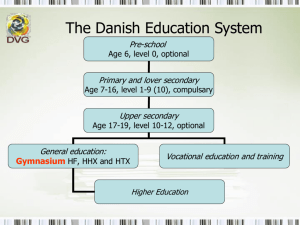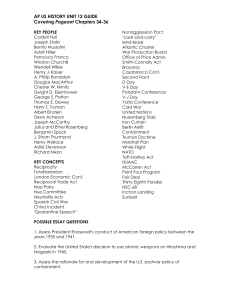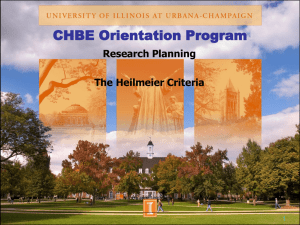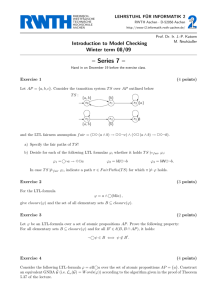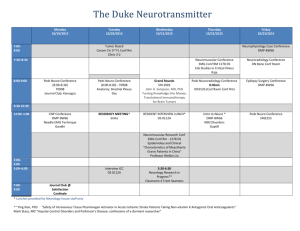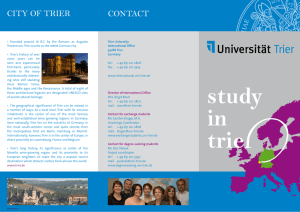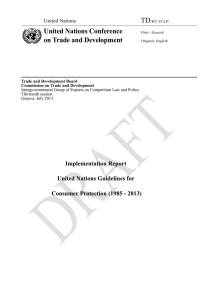740: Computer Architecture Project Proposal and Topics Carnegie Mellon University
advertisement
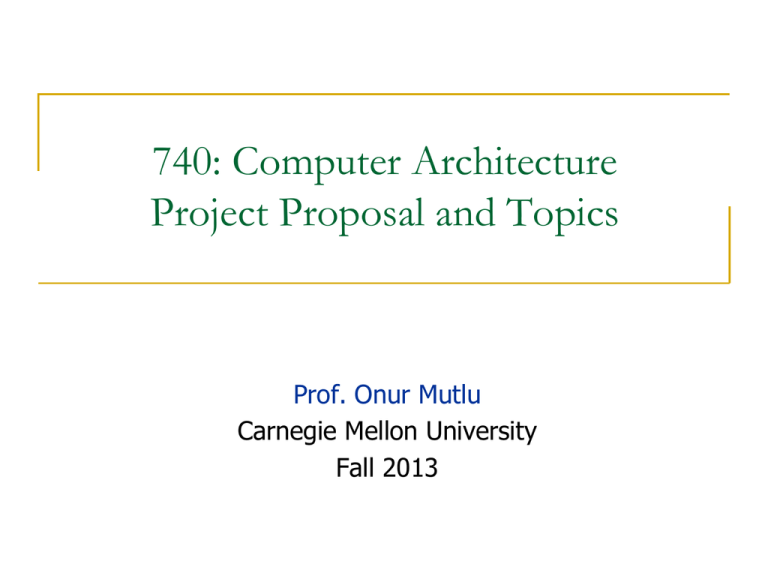
740: Computer Architecture Project Proposal and Topics Prof. Onur Mutlu Carnegie Mellon University Fall 2013 Research Project n n n n n n n Your chance to explore in depth a computer architecture topic that interests you Perhaps even publish your innovation in a top computer architecture conference. Start thinking about your project topic from now! Interact with me and the TAs Read the project topics handout well Groups of 2-3 students (will finalize this later) Proposal due: within 3 weeks of first recitation session 2 Research Project n Goal: Develop (new) insight q q Solve a problem in a new way or evaluate/analyze systems/ideas Type 1: n n q Develop new ideas to solve an important problem Rigorously evaluate the benefits and limitations of the ideas Type 2: n n Derive insight from rigorous analysis and understanding of existing systems or previously proposed ideas Propose potential new solutions based on the new insight n The problem and ideas need to be concrete n Problem and goals need to be very clear 3 Research Proposal Outline: Type 1 n The Problem: What is the problem you are trying to solve q n Novelty: Why has previous research not solved this problem? What are its shortcomings? q n n n n Define very clearly. Explain why it is important. Describe/cite all relevant works you know of and describe why these works are inadequate to solve the problem. This will be your literature survey. Idea: What is your initial idea/insight? What new solution are you proposing to the problem? Why does it make sense? How does/could it solve the problem better? Hypothesis: What is the main hypothesis you will test? Methodology: How will you test the hypothesis/ideas? Describe what simulator or model you will use and what initial experiments you will do. Plan: Describe the steps you will take. What will you accomplish by Milestone 1, 2, 3, and Final Report? Give 75%, 100%, 125% and moonshot goals. All research projects can be (and should be) described in this fashion. 4 Research Proposal Outline: Type 2 n The Problem: What is the problem/phenomenon you are trying to evaluate? q n Novelty: How has previous research evaluated this? What are its shortcomings? q n n n n Define very clearly. Explain why it is important. Describe/cite all relevant works you know of and describe why these works are inadequate to solve the problem. This will be your literature survey. Evaluation method: How will you evaluate the phenomenon/idea? What experimental infrastructure will you design? How would that experimental infrastructure enable you to reliably evaluate the phenomenon/idea? Hypotheses: What hypotheses will you test? Methodology: What are your plans for evaluation? What experiments will you run? How will you do the data analysis? Plan: Describe the steps you will take. What will you accomplish by Milestone 1, 2, 3, and Final Report? Give 75%, 100%, 125% and moonshot goals. All research projects can be (and should be) described in this fashion. 5 Heilmeier’s Catechism (version 1) n n n n n n n n n What are you trying to do? Articulate your objectives using absolutely no jargon. How is it done today, and what are the limits of current practice? What's new in your approach and why do you think it will be successful? Who cares? If you're successful, what difference will it make? What are the risks and the payoffs? How much will it cost? How long will it take? What are the midterm and final "exams" to check for success? 6 Heilmeier’s Catechism (version 2) n What is the problem? Why is it hard? How is it solved today? What is the new technical idea? Why can we succeed now? What is the impact if successful? n http://en.wikipedia.org/wiki/George_H._Heilmeier n n n n n 7 Supplementary Readings on Research, Writing, Reviews n Hamming, “You and Your Research,” Bell Communications Research Colloquium Seminar, 7 March 1986. n n n http://www.cs.virginia.edu/~robins/YouAndYourResearch.html Levin and Redell, “How (and how not) to write a good systems paper,” OSR 1983. Smith, “The Task of the Referee,” IEEE Computer 1990. q Read this to get an idea of the publication process n SP Jones, “How to Write a Great Research Paper” n Fong, “How to Write a CS Research Paper: A Bibliography” 8 Where to Get Project Topics/Ideas From n Project topics handout n Assigned readings q n Mutlu, “Memory Scaling: A Systems Architecture Perspective” Recent conference proceedings q q q q ISCA: http://www.informatik.uni-trier.de/~ley/db/conf/isca/ MICRO: http://www.informatik.uni-trier.de/~ley/db/conf/micro/ HPCA: http://www.informatik.uni-trier.de/~ley/db/conf/hpca/ ASPLOS: http://www.informatik.uni-trier.de/~ley/db/conf/asplos/ 9 740: Computer Architecture Project Proposal and Topics Prof. Onur Mutlu Carnegie Mellon University Fall 2013
